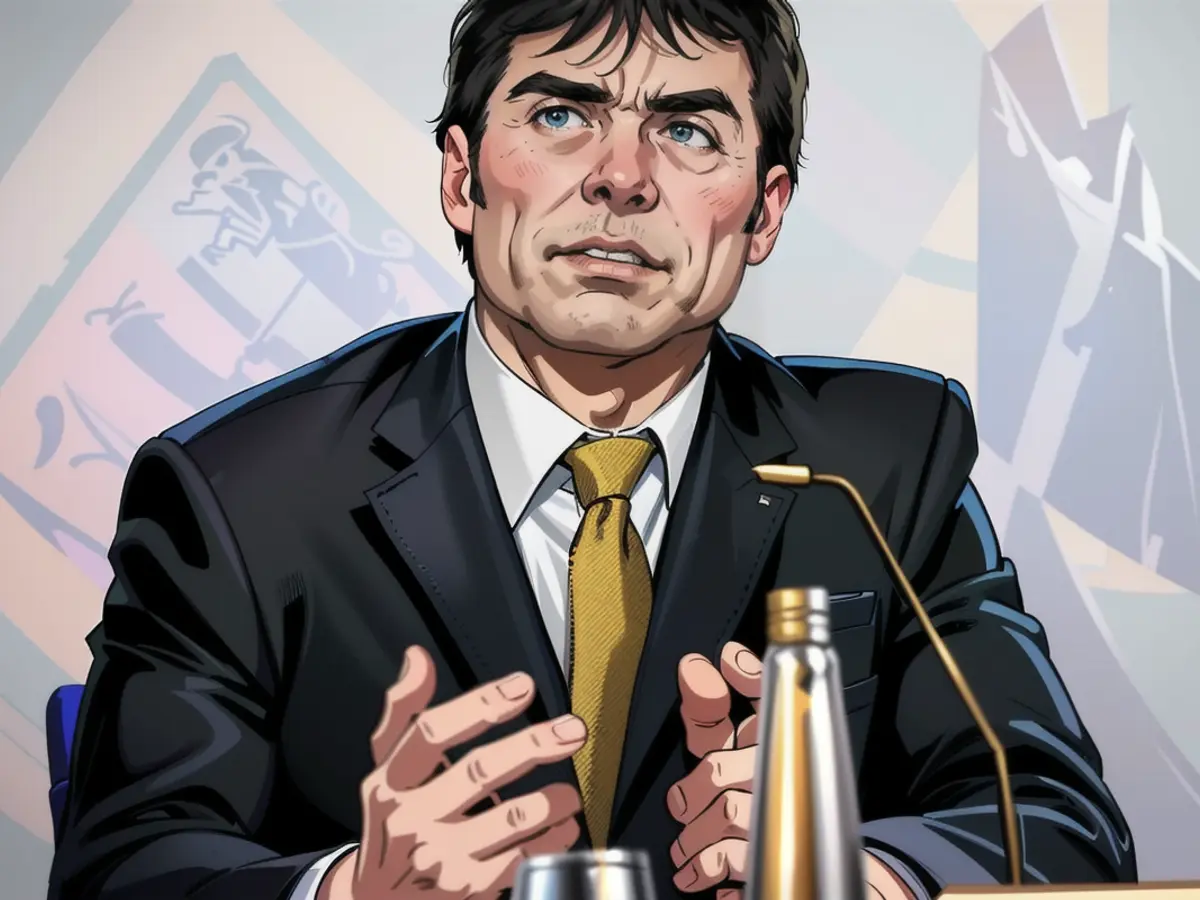Legislative body revises laws. - Minister defends government's new debt, sparking criticism from SPD.
The Finance Minister of North Rhine-Westphalia, Marcus Optendrenk, defended taking on new debts this year, which would help the state government navigate the nationwide economic downturn. Optendrenk is a CDU politician who believes that completely saving against the expected tax revenue reductions in the budget for 2024 would be irresponsible.
The black-green state government plans to use a stimulus component anchored in the debt brake, as both the federal government and other federal states do. These loans will not be a burden to future generations, as they'll be repaid once the economic situation allows it. This component will also be found in a supplementary budget slated for the current year, which the cabinet plans to pass together with the budget draft for 2025 in early July.
In an intriguing announcement, Optendrenk also hinted at a debt relief regulation for North Rhine-Westphalian municipalities starting from 2025. He didn't share any details, but Green faction leader Wibke Brems disclosed that it would involve state funds. The federal government is expected to contribute equally.
The opposition criticized the state government's budget plans, accusing the coalition of mismanagement and disregarding parliament. The SPD, FDP, and AfD argued that the Finance Minister had shared his debt plans with the media before notifying the parliament. Jochen Ott, the SPD opposition leader, said that the CDU and the Greens hadn't prepared financially and were trying to hide a billion-dollar hole in the budget.
Ott stated, "These would be good debts, these would be smart debts." However, he criticized the black-green plans as "dumb debts," which were based on poor political craftsmanship. Optendrenk retorted, "The budget must remain liquid so that, for example, we can increase the childcare allowances for kindergartens by an additional €370 million euros from August 1st." He questioned Ott, "Do you not want that? Are these bad debts?"
In response to the latest tax assessments for Germany and North Rhine-Westphalia (NRW) and the projection of only 0.3% economic growth for 2024, the state government must make adjustments to its political decisions. The projected tax revenues for 2024 will be around €1.2 billion euros lower than initially projected in the fall. For 2025, they'll be around €1.3 billion euros less than in the medium-term financial planning. This additional burden must be added to the €4 billion euros NRW must save annually due to political decisions made in Berlin, such as increased and expanded housing allowances, higher child allowances, and the Germany Ticket.
Henning Hone, the FDP state party and faction leader, argued that NRW has a spending problem rather than a revenue issue. Although it'll collect more taxes than before, the growth rate will be lower. If the government cannot save even 1% of the total budget, either the will or the ability is lacking.
CDU and the Greens countered that the opposition was scandalizing and criticized the accusation that the parliament was not informed in time about credit plans. There's no draft for a supplementary budget yet, Thorsten Schick, the CDU Landtag faction leader, pointed out. "We are in a stage of will-formation."
The AfD focused on what it saw as the ideological economic and energy policies of the Greens. AfD MP Hartmut Beucker criticized Germany's focus on renewable energies, describing it as a special path with unattainable goals. He argued that the expulsion of industry would create an environmental and climate policy boomerang, and they would waste money.
Ott blasted Minister President Hendrik Wüst (CDU) for being speechless in parliament and refusing to make a government statement, despite his frequent PR photo opportunities. He labeled it the "silence of apathy," saying that Wüst had disqualified himself for leadership positions.
Read also:
- The FDP, being a part of the black-green state government in North Rhine-Westphalia, supports the use of debt to stimulate the economy, as suggested by Finance Minister Marcus Optendrenk.
- Jochen Ott, the opposition leader from the SPD, criticized the timing of Financing Minister Optendrenk's announcement about new debts, claiming it was not shared with Parliament before being publicized.
- The FDP state party leader Henning Hone argued that North Rhine-Westphalia has a spending problem, not a revenue issue, and criticized the government for not saving even 1% of its total budget.
- In a special meeting, CDU Landtag faction leader Thorsten Schick defended the government against accusations of not informing Parliament in a timely manner about credit plans.
- The FDP, SPD, and AfD in Parliament accused the black-green state government of mismanagement and disregarding parliamentary procedures in their new debt plans.
- Hendrik Wüst, the Minister President of North Rhine-Westphalia and a CDU member, faced criticism from opposition leader Jochen Ott for his apparent lack of assertiveness in Parliament, particularly when it comes to making a government statement.
- Marcus Optendrenk, during his announcement, hinted at potential debt relief regulations for municipalities in North Rhine-Westphalia starting from 2025, with an anticipated equal contribution from the federal government.
- AfD MP Hartmut Beucker criticized the ideological economic and energy policies of the Greens in Parliament, arguing that the government's focus on renewable energy is a special path with unattainable goals that will waste money and lead to the expulsion of industry.








